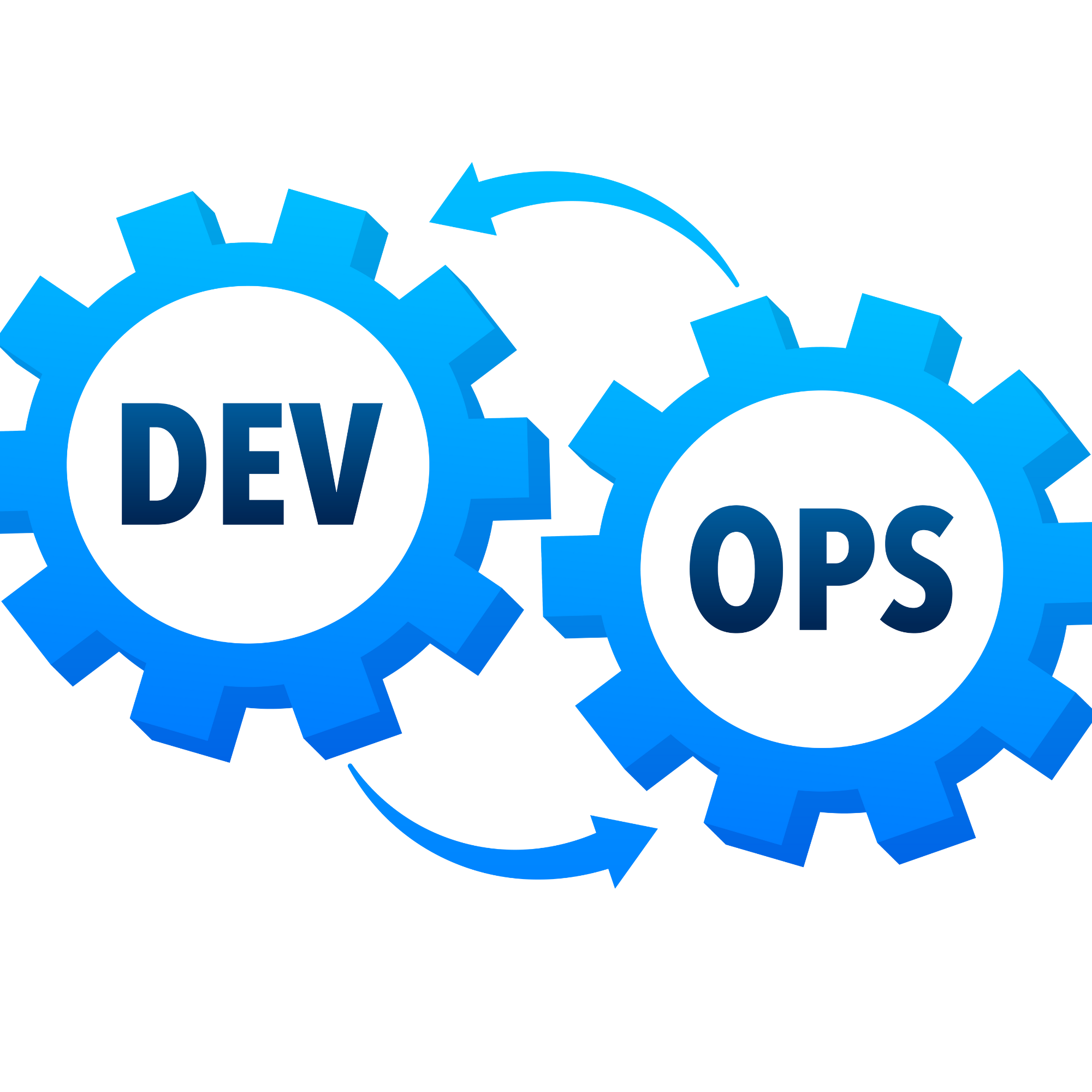ITSM Document Management
The Foundation of ITSM Document Management
3 min read
![]() Empyra Staff
Feb 7, 2024 6:02:00 AM
Empyra Staff
Feb 7, 2024 6:02:00 AM

DevOps has evolved into a mainstream strategy for sustained innovation, aligning development, operations, and business teams. It isn't just a passing trend; it is the driving force behind seamless collaboration, ensuring rapid and high-quality software delivery. DevOps Enablement services enhance efficiency and promote continual improvement, overcoming obstacles such as unclear objectives, resistance to change, skills shortages, and outdated tooling. Moreover, it revolutionizes software development by breaking down silos between development and operations, fostering collaboration, and enabling faster, more reliable processes. It facilitates continuous and iterative development, ensuring high-quality product delivery efficiently.
Agile Evolution: Continuous and Iterative Software Development
At its core, DevOps is centered around the idea of embracing continuous and iterative software development. Instead of following lengthy release cycles, where months pass before software updates are rolled out, DevOps promotes the concept of delivering software in smaller, incremental releases. This approach enables teams to respond quickly to market demands and user feedback.
It effectively addresses challenges by creating an environment where software teams are well-informed. The methodology initiates task allocation at the outset, ensuring a collective ownership that enhances organization and diminishes communication and knowledge gaps between the development and operations teams.
The Need for Speed: Accelerating Time-to-Market: The Power of DevOpS
One of the most significant advantages is its ability to reduce the time it takes to bring new software features to market. By automating various stages of the development process, such as building, testing, and deployment, DevOps enables teams to cut down on manual efforts and eliminate bottlenecks.
Developers can automate the building and testing of their code, ensuring that any issues are caught early on. This automation eliminates the need for time-consuming manual testing, allowing teams to release software updates more frequently and with greater confidence in their quality.
Beyond Streamlining: Strengthening Connections Between Developers and Operations
It is not just about streamlining processes; DevOps also prioritizes collaboration and communication. By breaking down departmental silos, DevOps brings developers, operations teams, and other stakeholders together in a more cohesive and collaborative work environment.
When developers and operations teams work closely together, they can jointly identify and address potential issues and bottlenecks. This collaboration leads to improved cross-team understanding and a shared sense of responsibility, ultimately resulting in faster resolution of problems and more reliable software. By working together closely, developers gain a deeper understanding of operational requirements, while operations teams gain insights into the development process. This mutual understanding leads to better decision-making and the ability to address potential issues proactively.
User-Centered Development with Improved Reliability and Efficiency
The focus is not only on speed but also on reliability. By automating key processes and leveraging continuous integration and deployment practices, teams can ensure that software updates are thoroughly tested and stable before they are released.
Additionally, the iterative nature of DevOps allows teams to gather user feedback early in the development cycle. This feedback can then be incorporated into subsequent releases, enabling teams to deliver high-quality products that meet user expectations.
Moreover, by automating routine tasks, such as infrastructure provisioning and configuration management, it frees up valuable time for developers and operations teams. They can focus on more critical aspects of their work, such as innovation and problem-solving, which ultimately leads to increased efficiency.
Synergizing DevOps and AI/ML: A Paradigm Shift in Efficiency and Innovation
An integration of software development and operations, coupled with the prowess of AI/ML, offers a paradigm shift in efficiency, productivity, and innovation. This synergy brings forth multifaceted advantages.
AI/ML algorithms streamline operations by automating often repeated tasks, enabling teams to focus on strategic endeavors. They enhance continuous integration and deployment by predicting conflicts and failures, facilitating smoother processes. AI-driven chatbots foster improved collaboration by offering real-time assistance and automating routine tasks, fostering a collaborative work culture. In terms of security, AI/ML reinforce measures, analyzing data to detect vulnerabilities and predict breaches.
Shaping the Future: A Mainstream Catalyst for Sustained Innovation
The integration of DevOps, marked by continuous and iterative software development, has become a mainstream strategy for sustained innovation. It aligns development, operations, and business teams, breaking down silos and fostering seamless collaboration. It’s not merely a passing trend; it serves as the driving force behind rapid, high-quality software delivery. The incorporation of DevOps Enablement services enhances efficiency and promotes continual improvement, overcoming obstacles and outdated practices and with the fusion of AI/ML amplifies the transformation together. They propel efficiency, productivity, and innovation to new heights, shaping the future of software development and operations. Are you ready to embrace the power of DevOps and revolutionize your software development practices? We are experts in leveraging Atlassian tools for transforming IT process management. Talk with an expert today to learn how we can support your organization.
FAQS
What are the key Business benefits for Devops?
DevOps delivers faster time-to-market and improved software quality, fostering agility, efficiency, and enhanced collaboration, leading to increased customer satisfaction and business competitiveness.
How Devops increases system security in an Organization?
DevOps enhances system security by integrating security measures throughout the development lifecycle, promoting automation for consistent monitoring, rapid response to vulnerabilities, and proactive threat mitigation, thereby minimizing risks and ensuring a more secure organizational environment.
What are the top challenges of Devops implementation?
The top challenges of DevOps implementation include cultural resistance to change, integration complexities with existing systems, skill gaps within teams, ensuring effective collaboration, and managing the transition from traditional practices to automated processes.
Are Agile and DevOps same?
No, Agile and DevOps are not the same. Agile is a methodology focusing on iterative development and flexibility, while DevOps is a set of practices integrating development and operations teams to enhance collaboration, automation, and efficiency throughout the software development lifecycle.

The Foundation of ITSM Document Management

In the ever-evolving landscape of project management, artificial intelligence (AI) stands out as a transformative force. The incorporation of...

IT Service Management (ITSM) refers to the process of managing IT service delivery for customers by teams. This encompasses all the multiple...
HQ: Texas Office
549 E. Sandy Lake Rd., Suite 100, Coppell, TX 75019
Ohio Office
7510 Market, Suite #8
Boardman, OH 44512
New York Office
1177 6th Ave 5th Floor
New York, NY 10036
Vancouver, Canada Office
501 – 1367 West Broadway
Vancouver BC V6H 4A7
Bangalore, India Office
#1119, Banashankari 6th Stage, 1st Block, Bangalore – 560098
Singapore Office
1 Fullerton Rd, #02-01 One Fullerton, Singapore 049213
Copyright © 2024 Empyra.com, Inc. | Terms of Use | Privacy Policy | Trust Center